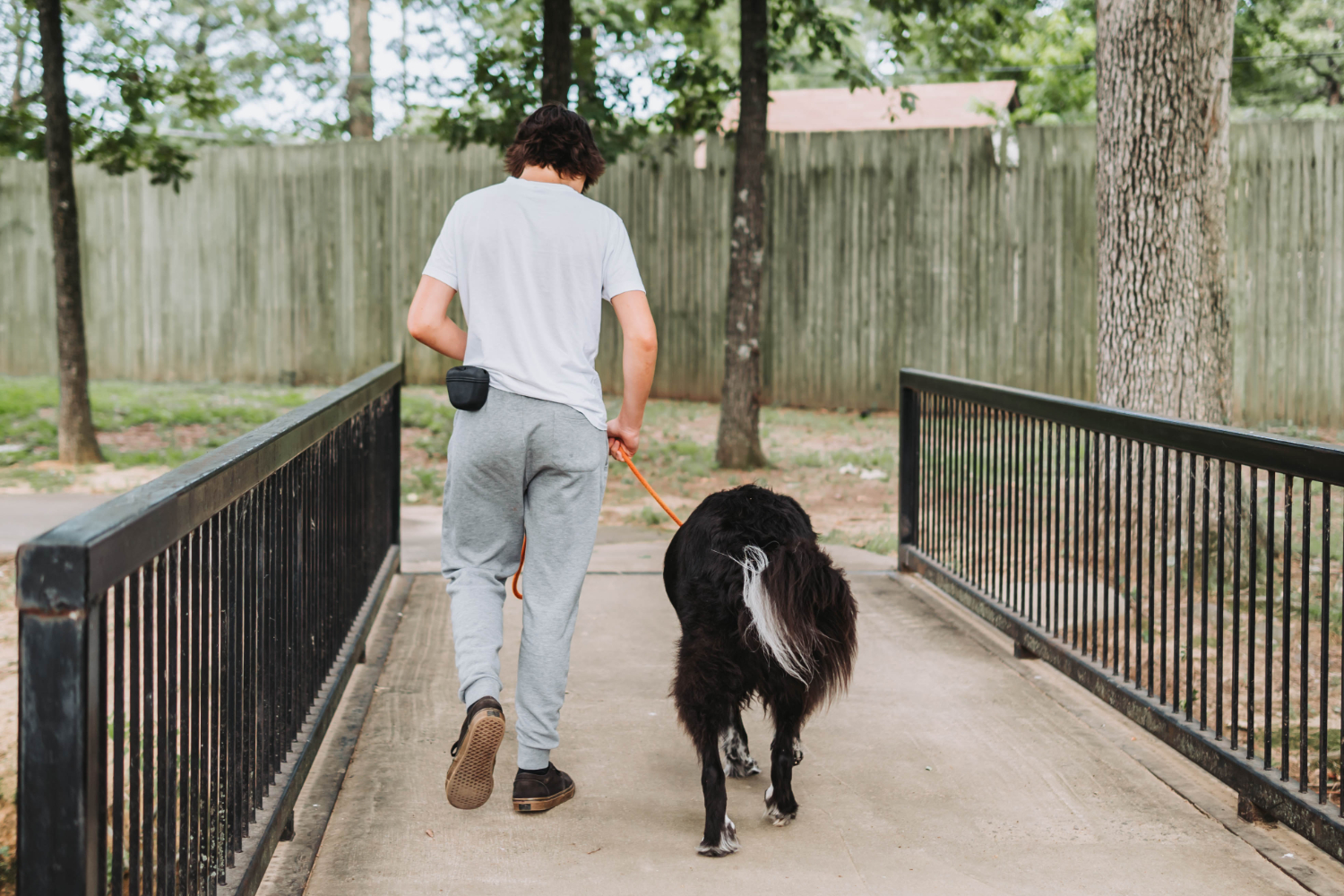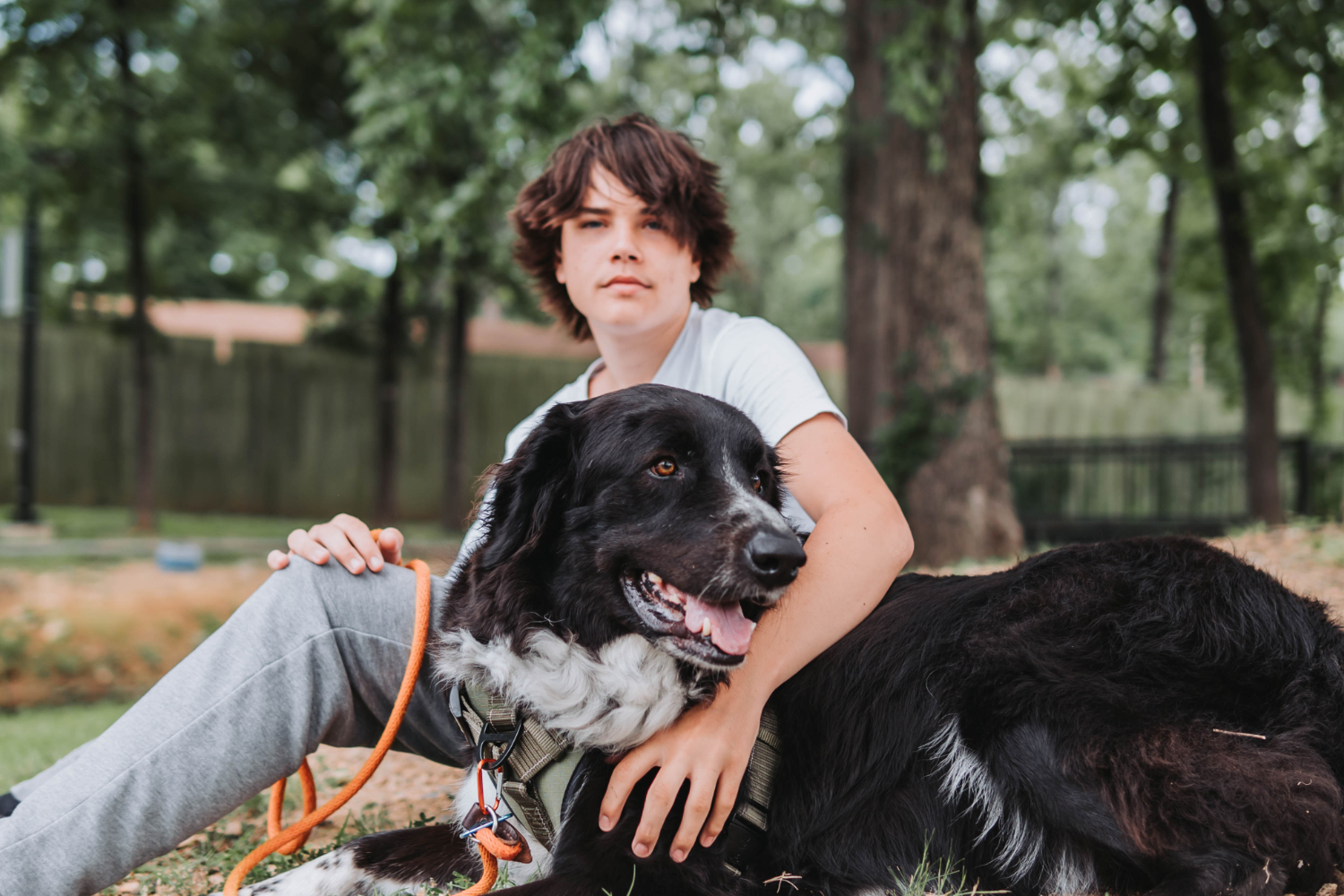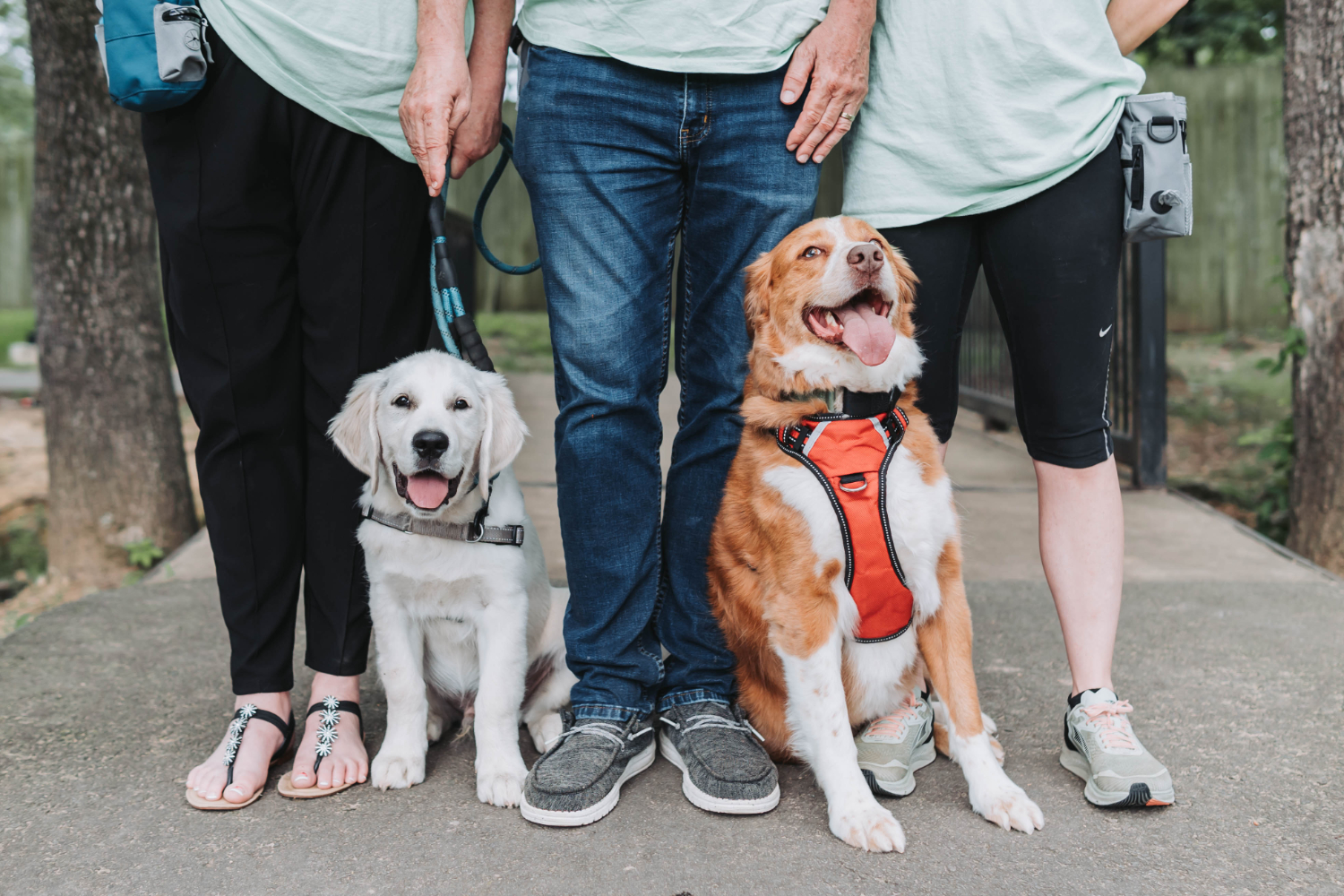How We Help
We’re with you and your service dog every step of the way
Saving Grace Service Dogs helps you through every step of the trainer and service dog training process. The skills you will learn will last your lifetime, allowing you to train future service dogs for years to come.
Training your dog is more affordable
The cost of a service dog can be quite high. So high that it might be hard to take out a loan for the costs. There are many ways that you can receive help with payment for your service dog, like bank loans and fundraising through your local community or GoFundMe.


Saving Grace Service Dogs Training Programs Improve Lives
The service dog training programs are intended to teach a trainer skills that will last a lifetime. It is understood that someone who needs a service dog may be partnered with many K9 helpers throughout their lifetime.
By training dogs with their owners, an owner will always have the skills they need to train a dog that will mitigate their disabilities or chronic illness. If an owner is unable to fully train their own dog, Saving Grace Service Dogs can work with an owner’s support person to train the dog they need.

Our Programs are Customized to Your Specific Needs
Saving Grace Service Dogs specializes in the services listed below, but we are open to working with those who have different support needs. If you are interested in our services, contact us to book a consultation!
We do not facilitate training for seeing eye dogs, seizure dogs, or diabetic service dogs.
Autism Spectrum
A service dog can help someone on the autism spectrum navigate through transitions at home, at school, and in their daily life. Additionally, they can help with intervention for repetitive behaviors, mood stabilization, elopement, and more.
Anxiety/PTSD
A service dog can help someone who experiences complications and symptoms of anxiety and or PTSD through the help of deep pressure therapy, waking the owner in the event of a nightmare, offering comfort, and guarding their owner.
Chronic Pain
If you experience chronic pain, a service dog can help you with the retrieval of items, such as medications. They can also mitigate your symptoms by offering deep pressure therapy, encouragement for activity, bracing to support mobility issues, and more!
Chronic Illness
If you experience symptoms and complications due to a chronic illness, a service dog can help by alerting others that their owner is experiencing a medical crisis, retrieving medication for their owner, lowering stress, and providing support with mobility.
Is this program a good fit for you?
The dog must have a gentle temperament
This includes dogs without displayed anxiety, fear, or agressiveness.
If you do not currently have a dog, wait before adopting or purchasing a dog until it can be assessed.
The client must be able to reasonably meet the emotional, physical, and financial obligations of the service dog.
This includes offering a stable home environment, providing adequate exercise, and grooming of the dog.
All clients must have the maturity and cognitive function to learn the skills required for training.
The dog must be spayed/neutered before training
The client must not adopt another dog during training.
If so, get started today!
Frequently Asked Questions
What age dogs would you recommend for training?
Dogs can be trained as early as 8 weeks old. However, some conditions do not lend themselves to the puppy stage. The oldest dog we would recommend for training would be 4 years old.
What dogs do you recommend to be a service dog?
That really depends on what the dog is assisting you with. We would assess any dog that shows promise of being able to mitigate your disability.
What is the training process?
The first step is to schedule an orientation meeting with us. Then we would need to assess a new dog for you, or assess one you already have. After that, we offer an 8 week period in which you would learn basic service dog obedience commands. At the end of the 8 week period, we would decide as a team whether this is the path you want to take. From there, we would complete Canine Good Citizenship, Public Access Training, and specific task training.
How often are dog training lessons?
Generally, we meet weekly for lessons. However, we realize that circumstances sometimes interrupt that schedule. We also offer Video calls on occasion if necessary.
Start living again with the service dog you deserve
A service dog can have a profound impact on someone with autism, PTSD, anxiety, and chronic illness or pain. It’s time to start living again, and Saving Grace Service Dogs is here to help.

Get in touch with Saving Grace Service Dogs